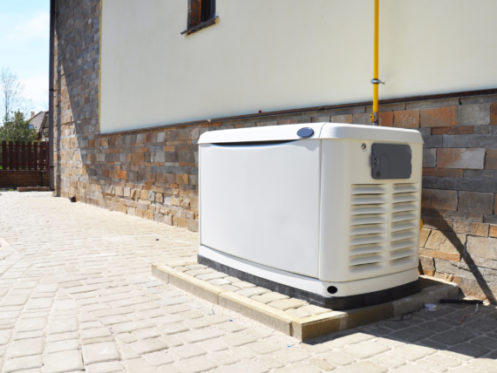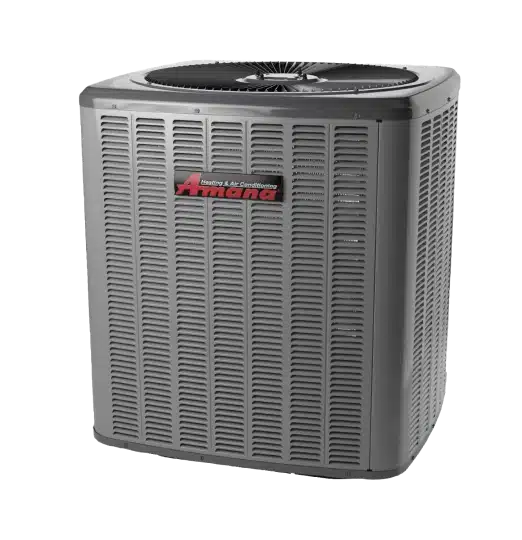Backup generators are a great way to protect yourself against power outages. They are also fairly expensive. When weighing the investment, you’ll want to know how long you can expect the unit to last before spending a few thousand dollars to purchase and have it installed. To help you out, here is a guide to tell you everything you need to know about how long home backup generators typically last and what steps you can take to protect your generator’s lifespan.
Average Lifespan for Backup Home Generators
Backup generators can potentially last for anywhere from 20 to 50 years or more, but this depends on the type and brand of unit, how often it is used and how well you take care of it. Most backup generators have a maximum lifespan of somewhere between 1,500 and 3,000 hours.
Backup generators need to be run for around 30 minutes every week to make sure everything is working properly and prevent any potential issues. This is known as “exercising” your generator and is vital to ensure the unit functions properly when you need it. Even if your power never goes out throughout the year, your generator should still run for a minimum of 26 hours every year from exercising.
How Long Can a Backup Home Generator Run Continuously?
Theoretically, your backup home generator should be able to run for as long as you need it until the power comes back on. That being said, it is generally not recommended to ever let the unit run for more than 500 hours at a time without giving it at least a few hours of rest. Still, that means you could run the unit for nearly three straight weeks without having to worry about it, which is probably far longer than your power would be out except in the case of a major natural disaster.
Backup generators are usually powered by either natural gas or propane. If your unit runs off of natural gas, it will continue to run as long as the gas supply isn’t shut off. For propane-powered units, the specific amount of time it can run continuously will be limited by the size of your propane tank and how much gas is left in it.
If your tank only runs the generator and nothing else, you probably don’t need to worry about running out of gas during even a major blackout. However, if you also use propane for heating, cooking and other activities, you should regularly have your tank filled to ensure you have enough gas to get you through any potential power outages.
Ways to Improve the Lifespan of Your Backup Generator
Regular maintenance is the single biggest factor in determining how long you can expect your backup generator to last. If you neglect to exercise your generator every week and don’t ever have it professionally maintained, it is likely that the unit won’t even last a decade. There is also a very good chance that it either won’t turn on when you need it or will suddenly stop running due to any number of potential issues.
Exercising your unit every week is extremely important as it can alert you to any possible problems that need to be repaired. In addition to making sure to exercise your unit weekly, you should also have it professionally inspected and serviced once a year. In this way, you can ensure that the unit is ready to go whenever the power goes out
To exercise your unit, all you need to do is turn off the mainline electrical breaker where the power comes into your house. This will disconnect your home from the electrical grid and cause the generator to automatically turn on.
You should hear the transfer switch click to alert you that your home has switched over to the generator. This will usually happen within a few seconds, but it could take up to a few minutes. If you don’t hear the transfer switch click and the generator turn on, you will need to have the unit professionally inspected.
Once the generator is running, monitor the unit for any unusual noises or other signs that can indicate it isn’t working properly. This includes checking the temperature gauge to make sure the unit isn’t getting too hot and making sure that the oil pressure level is normal. You should also inspect the outside of the unit to ensure there are no leaks and that the unit isn’t producing more exhaust than normal. Most newer backup generators will also have alarms or alert codes that will tell you if the unit is experiencing any issues.
While the unit is running, you will also need to go inside and make sure all of your major appliances are still working. If your air conditioning isn’t already running, turn it on to make sure there is enough power to run it as well.
After you’ve let the generator run for around half an hour and you’re satisfied that everything is working as it should, you can turn the mainline breaker back on. This will reconnect the house to the electrical grid, and the generator should automatically power down soon after.
While generator maintenance does take a weekly commitment, it is well worth the time it takes. It will both help to extend the life of the unit and give you peace of mind knowing that it is ready whenever you need it.
Differences Between Backup and Portable Generators
Many people are confused about the differences between backup generators and portable generators. The difference is that backup generators are connected directly to your home’s electrical system. In the event that the power goes out, the system will detect this and automatically start up within a few seconds. This allows you to continue running your furnace, air conditioner, refrigerator, lights and all other electrical appliances until the power comes back on, at which time the generator will automatically shut off.
Portable generators can also come in handy during a blackout, but they won’t be able to power your entire home. If the power goes out, you can run an extension cord into the house to keep your refrigerator and freezer running as long as the unit produces enough power. You will also be able to charge your phone or other devices, but you won’t be able to power any hard-wired appliances like your oven, dishwasher, air conditioner or electric heating. You also won’t have any lighting unless you have lamps that you can plug into the extension cord.
Portable generators do have their uses. However, if you truly want to be prepared against an inevitable power outage, a backup home generator is the only real option.
Expert Generator Maintenance, Repair and Installation
If your backup generator is experiencing any issues, the expert electricians at Accurate Home Services in Kaufman, TX specialize in generator repairs. We work on all types of backup generators from major brands such as Generac, Briggs and Stratton, Cummins, Champion and Kohler, and our licensed electricians can also take care of your generator maintenance needs. If you’re looking to install a new backup generator for your home, we can help with that as well. We also have a team of certified HVAC technicians that can take care of your home’s air conditioning and heating systems. For more information on \generator maintenance, repairs or any of our other services, give us a call today.




